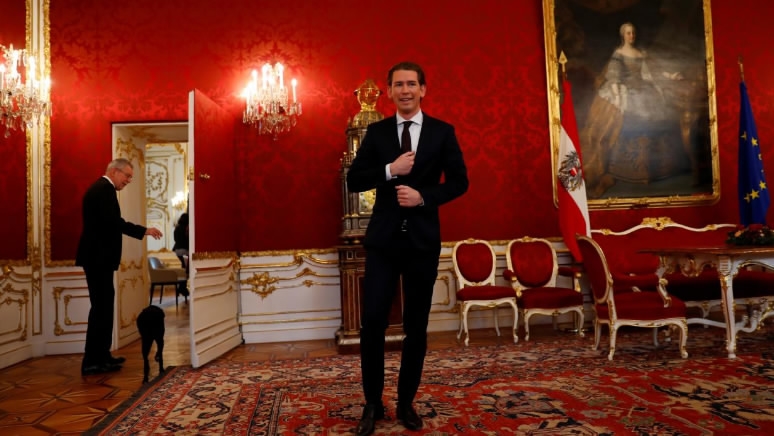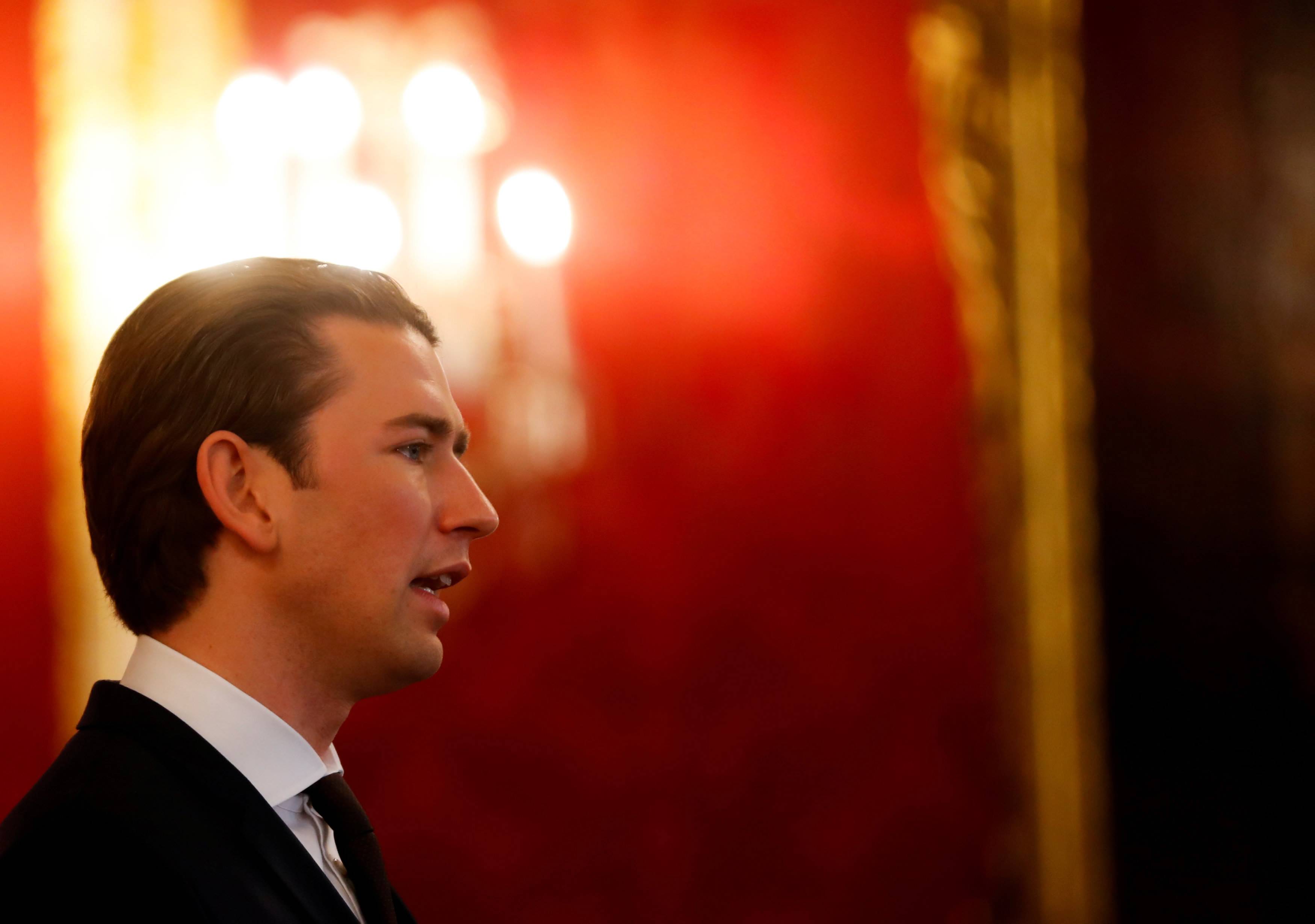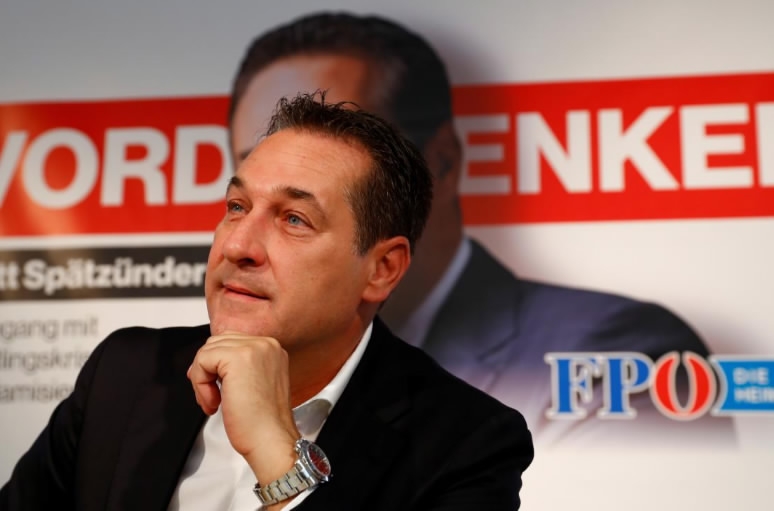
Politics
08:02, 15-Dec-2017
Austria's Kurz says pro-EU stance secured in deal with far right
CGTN

Coalition talks between Austria’s far-right Freedom Party and conservatives led by Sebastian Kurz are drawing to a close and have laid down guarantees that the next government will be pro-European, Kurz said on Thursday.
Kurz, who is just 31, led the People’s Party (OVP) to victory in a parliamentary election on Oct. 15, taking a hard line on immigration that often overlapped with that of the anti-Islam Freedom Party (FPO), which came third.
People familiar with their coalition talks, which began on Oct. 25, said a deal might be reached as early as Friday evening and is likely to be struck over the weekend. That would end more than a decade in opposition for the FPO, which was led by the late Joerg Haider when it last entered government in 2000.
The FPO has backed away from calling for Austria to follow Britain by holding an “Oexit” referendum on leaving the European Union. It now says it is pro-European but critical of the bloc and wants to prevent further political integration.

Austria's leader of the People's Party (OVP) Sebastian Kurz talks to the media after meeting with President Alexander Van der Bellen in Vienna, Austria, December 14, 2017. /Reuters Photo
Austria's leader of the People's Party (OVP) Sebastian Kurz talks to the media after meeting with President Alexander Van der Bellen in Vienna, Austria, December 14, 2017. /Reuters Photo
“It was important to the president, and to me, that the new government have a pro-European orientation. From my point of view, that has been secured,” Kurz told reporters after meeting President Alexander Van der Bellen, adding that he was confident of a deal before Christmas.
Kurz did not say what those points were, but the talks are well advanced, with the parties having produced joint lists of planned policies, from lowering taxes while staying within EU budget rules to providing refugees with a “light” version of regular benefit payments for five years.
Taking back control
While those plans have often been expressed vaguely, Kurz and his party have obtained some specific concessions that would limit the FPO’s options if it were to turn against the EU.
Points already agreed include moving some Foreign Ministry departments in charge of European affairs to the chancellor’s office, which Kurz will head, a person close to the coalition talks said.

Head of Austrian far-right Freedom Party (FPO) Heinz-Christian Strache addresses a news conference in Vienna, Austria, September 25, 2017. /Reuters Photo
Head of Austrian far-right Freedom Party (FPO) Heinz-Christian Strache addresses a news conference in Vienna, Austria, September 25, 2017. /Reuters Photo
Those include the task force in charge of preparing for Austria’s EU presidency in the second half of next year and the section in charge of coordinating policy for various EU forums, including that of envoys to Brussels, the person said.
Items still being discussed include making it possible to call referendums by petition. Both sides agree on the principle, but the OVP wants a higher threshold – around 10 percent of voters, while the FPO is pushing for 4 percent.
Under the draft terms of their coalition deal, however, “direct democracy is restricted so that an 'Oexit' referendum is not possible,” one person familiar with the talks said, which a second confirmed.
The deal will also ensure support for EU sanctions against Russia, one added, to guard against the FPO’s pro-Russian stance. Ministerial appointments have yet to be decided, but the Foreign, Defense and Interior Ministries are set to come under the FPO’s control, that source said.
Source(s): Reuters

SITEMAP
Copyright © 2018 CGTN. Beijing ICP prepared NO.16065310-3
Copyright © 2018 CGTN. Beijing ICP prepared NO.16065310-3